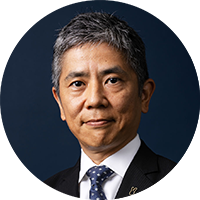Coaching Cafe provides you simple tips to bring back to your team management. They do not require any formal coaching skills: all you need to do is make time to talk to your teams first rather than learning skills.
Beliefs Underlying the Hesitation Towards Giving Feedback

June 5, 2023

When discussing with my coach colleagues about what their challenges and areas of growth are, I often find that the topic of 'feedback skills' emerges frequently. It is not limited to rookie coaches with less than a year of experience but also resonates with veteran coaches who have over 10 years of coaching experience.
Regardless of the length of coaching experience, many coaches feel anxious or hesitant when it comes to giving feedback to their clients. It is natural to fear unexpected reactions from clients and worry about potential damage to the relationship built with them.
I can relate to this feeling as well.
Being Vulnerable with Clients
Recently, I took reference on a document called “The ICF CORE COMPETENCIES RATING LEVELS” that explains the difference in coaching at the Associate Certified Coach (ACC), Professional Certified Coach (PCC), and Master Certified Coach (MCC) levels of certification and got some insights.
Although the document was created based on the previous Core Competencies before the revision in November 2019, it is still relevant and applicable to the current competencies.
The passage that caught my attention was the one that described the characteristics of MCC-level coaching:
3. Establishing Trust and Intimacy with the Client
“Coach is willing to be vulnerable with the client and have the client be vulnerable with the coach.”
When I read the above, I realized that the underlying cause of my anxiety and hesitation when giving feedback lies in the belief that "I must be a provider of perfect coaching in front of the client."
Feedback is an essential skill in coaching. Approaching feedback with the fear of failure, in other words, the fear of exposing oneself as an incompetent coach, is highly defensive.
Being 'vulnerable' means accepting one's own imperfections, being open about them with clients, and being honest. Furthermore, 'desiring to be vulnerable with clients' means that the coach accepts that clients may react emotionally to feedback and is willing to embrace those various reactions.
Perhaps we find it challenging because we are expecting an ideal flow of delivering accurate feedback, having the client calmly receive it, and respond with "I had a realization!"
Becoming True Partners
We should shift our perspective to one where we see ourselves as still learning about feedback. Clients, too, should see themselves as still learning about receiving feedback.
In this dynamic, both coach and client exchange feedback with each other and provide further feedback on the feedback they have exchanged.
This relationship can be seen as coaches and clients becoming partners who mutually enhance each other's feedback abilities.
Interestingly, the 'ICF CORE COMPETENCIES RATING LEVELS' also includes the following description:
Coaching Presence
“The coach is in a fully partnered conversation with the client.”
I see. What an insight.
--Extracted and translated into English from "Coaching Cafe - Assumptions Underlying Hesitancy to Give Feedback" written by Hitoshi Murakata, Executive Coach
*Regardless of profit, non-profit or intranet, secondary use such as copying, diversion, selling etc. is prohibited without permission.
